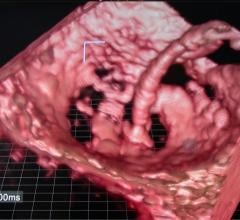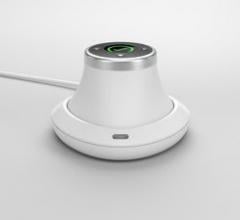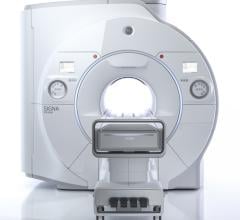Abbott announced that the first patient has been enrolled in a clinical study to evaluate a minimally invasive clip-based repair system for treating people with moderate or severe tricuspid regurgitation (TR). The first patient was enrolled at Abbott Northwestern Hospital by Paul Sorajja, M.D., cardiologist at Minneapolis Heart Institute and Abbott Northwestern Hospital.
HeartFlow Inc. announced that four Blue Cross Blue Shield companies have each issued a positive medical policy for the HeartFlow FFRct (fractional flow reserve-computed tomography) Analysis.
August 9, 2017 — Ra Medical Systems announced that the United States Patent and Trademark Office (USPTO) has granted the ...
Cardiac PET/CT represents a major advancement in cardiovascular diagnostics, offering significant clinical and ...
Roxwood Medical Inc. recently announced it has entered into an exclusive agreement with Abbott for distribution of Roxwood products in the United States.
August 8, 2017 — Radical changes to our healthcare system accounting for the unique needs of women, including minority ...
AUM Cardiovascular announced it has received clearance from the U.S. Food and Drug Administration (FDA) for CADence, a non-invasive acoustic and electrocardiogram (ECG) device designed to help physicians detect physiological and pathological heart murmurs.
SPONSORED CONTENT — Studycast is a comprehensive imaging workflow system that allows healthcare professionals to work ...
Virtual Phantoms Inc. announced the release of VirtualDoseIR, a tool for assessing organ dose from interventional radiology (IR) procedures. Like its VirtualDose CT product for computed tomography, VirtualDoseIR combines a family of anatomically realistic human phantoms, advanced Monte Carlo simulations, and an easy-to-use web interface to provide realistic calculations of dose to a diverse patient population.
Xavier University has launched the Xavier Center for Artificial Intelligence (AI), a pioneering effort to accelerate the use of artificial intelligence to improve healthcare. The Center’s first major initiative will be the AI Summit on Aug. 24-25 on Xavier’s campus in Cincinnati. Xavier will lead representatives from the medical device and pharmaceutical industries and the U.S. Food and Drug Administration to further develop artificial intelligence to promote and protect patient health.
CardioFocus Inc. announced that its HeartLight Endoscopic Ablation System is being featured in three new major clinical studies currently underway. Collectively, up to 1,000 AF patients will be enrolled in these studies.
Providing exceptional cardiovascular care for patients to achieve the best possible outcomes is the number one goal for ...
In petri dishes in her campus laboratory at New Jersey Institute of Technology, Alice Lee is developing colonies of cardiac cells, formed into chambers, that pump and contract like a human heart. Derived from stem cells, these primitive organs will help her achieve a research milestone: to observe in microscopic, real-time detail how the heart repairs itself after injury.
To better prepare its ultrasound students to compete and thrive in the evolving healthcare environment, Oregon Institute of Technology (Oregon Tech) partnered with Mindray North America to update department and education capabilities with 25 new Mindray DC-8 Exp high-performance ultrasound systems.
GE Healthcare announced Signa Premier, a new wide bore 3.0T magnetic resonance imaging (MRI) system, is now available for sale in the United States. Signa Premier is the result of a four-year collaboration with the National Football League (NFL) and research institutions around the world working to design new imaging tools, particularly to aid researchers in the detection of biomarkers for the potential diagnosis of mild traumatic brain injury (TBI). GE said the system delivers a new level of clinical performance with additional research-focused capabilities, especially for neurology and oncology research.
Cardiac positron emission tomography (PET) is growing in popularity among cardiologists because it provides the ability ...
Cancer patients at Moffitt Cancer Center in Tampa, Fla., now have access to advanced diagnostic imaging for fast and safe exams with the facility’s Infinix-i 4-D computed tomography (CT) system from Toshiba Medical, a Canon Group company. Moffitt, one of the nation’s leading cancer hospitals, is the first healthcare provider in the state of Florida to use the system’s merging of the Infinix-i angiography system and Aquilion Prime CT system for interventional radiology (IR) and oncology procedures. The system may help clinicians improve visualization and workflow and increase patient safety. A ribbon-cutting ceremony was held on July 25 to mark the occasion.
Carestream will showcase its Carestream Touch Prime and Touch Prime XE Ultrasound Systems at the Society for Vascular Ultrasound conference that begins on Aug. 3. These systems are currently available in the United States and Canada.
August 3, 2017 — The Asian Pacific Society of Cardiology (ASPC) held its first-ever late-breaking clinical trials ...


 August 09, 2017
August 09, 2017


















